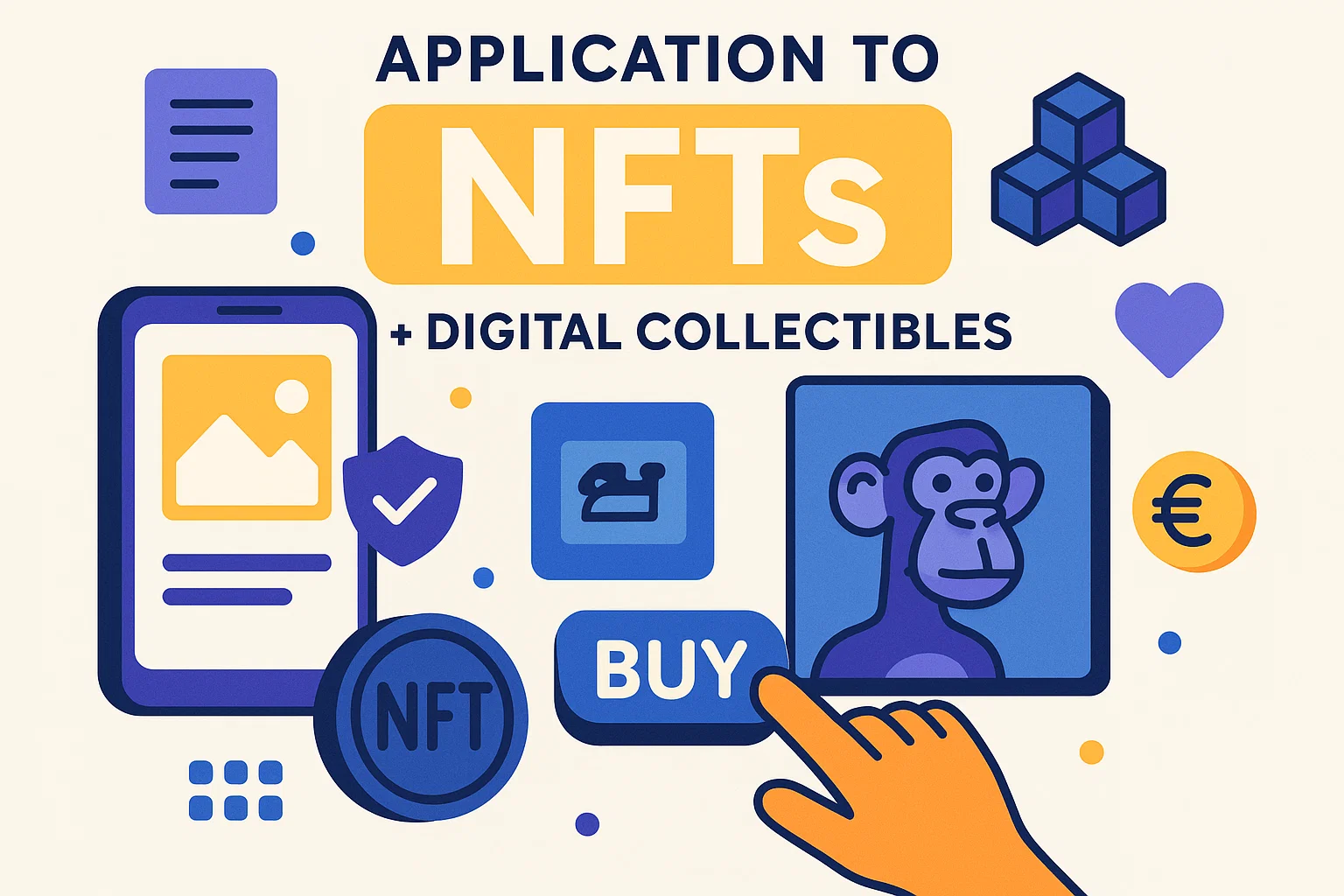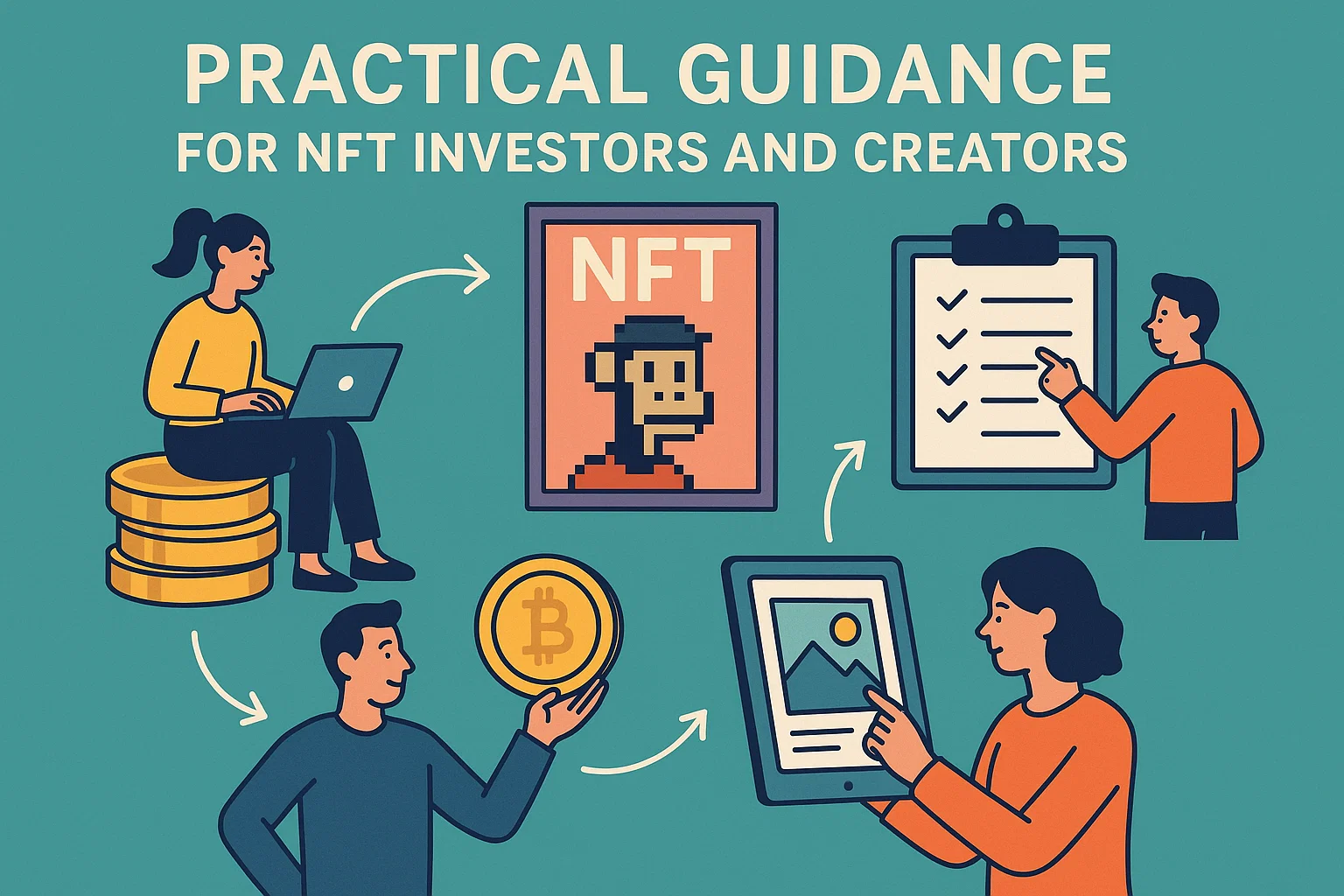The digital asset landscape witnessed a pivotal moment when a federal court determined that Bored Ape NFTs are not securities, providing much-needed clarity for the non-fungible token industry. This landmark ruling addresses one of the most pressing questions facing NFT collectors, creators, and marketplaces: whether digital collectables fall under securities regulations. The decision involving Yuga Labs’ Bored Ape Yacht Club (BAYC) could set a precedent for how regulators approach NFTs going forward. As investors and creators grappled with uncertainty about the legal status of their digital assets, the ruling on Bored Ape NFTs’ status as securities offers a framework for distinguishing collectable NFTs from investment securities. The implications extend far beyond a single project, potentially affecting thousands of NFT collections and billions of dollars in market value across the cryptocurrency ecosystem.
Bored Ape NFTs Securities Case
Background of the Legal Challenge
The lawsuit against Yuga Labs, creator of the Bored Ape Yacht Club, alleged that the company sold unregistered securities by marketing their NFTs as investment opportunities. Plaintiffs claimed that purchasers were led to expect profits derived from the efforts of Yuga Labs and its team, which, under the Howey Test—the legal standard for determining whether an asset qualifies as a security —would satisfy the Howey Test.
The Bored Ape NFTs securities ruling centred on whether these digital collectables constituted an “investment contract” under federal securities law. The Securities and Exchange Commission (SEC) has intensified scrutiny of the crypto industry, making this case particularly significant for determining regulatory boundaries.
The Court’s Reasoning and Decision
The court determined that Bored Ape NFTs are not securities based on several critical factors. The judge found that the NFTs themselves were sold as digital artwork and collectables, not as investment contracts promising future returns. While Yuga Labs engaged in marketing activities and created a community around the project, the court distinguished between building a brand and offering a security.
The ruling emphasised that purchasers primarily bought Bored Ape NFTs for their artistic value, social status, and access to exclusive events, rather than expecting profits solely from Yuga Labs’ managerial efforts. This distinction proved crucial in applying the Howey Test framework.
What Makes an Asset a Security? The Howey Test Explained
The Four Prongs of the Howey Test
To understand why Bored Ape NFTs are not securities, it’s essential to grasp the Howey Test established by the Supreme Court in 1946. An asset qualifies as a security if it involves:
- An investment of money – Purchasers spend money to acquire the asset
- In a typical enterprise, Multiple investors pool resources or share risks
- With an expectation of profits, Investors anticipate financial returns
- Derived from the efforts of others – Profits come predominantly from a third party’s work
The court found that while Bored Ape NFTs satisfied the first two prongs, they failed to meet the crucial third and fourth requirements in their primary sales.
Application to NFTs and Digital Collectables

The Bruling on Ape NFT securities clarified that not all promotional activities by NFT creators transform digital collectables into securities. The court recognised that building community value, hosting events, and developing intellectual property rights differ fundamentally from promising investment returns.
This nuanced approach acknowledges that NFT projects can experience secondary-market appreciation without being classified as securities, provided the primary purchase motivation centres on ownership, utility, or collectibility rather than passive investment returns.
Implications for the NFT Industry
Clarity for NFT Marketplaces and Creators
The determination that Bored Ape NFTs are not securities provides substantial relief for NFT marketplaces like OpenSea, Rarible, and Blur. These platforms have operated in regulatory uncertainty, unsure whether they needed to register as securities exchanges. The ruling suggests that marketplaces facilitating the trade of collectable NFTs may not face the same regulatory burden as traditional securities platforms.
Creators of digital art, gaming assets, and collectable projects can be confident that their work won’t automatically be classified as securities simply because secondary markets exist or communities form around their projects. This ruling of Bored Ape NFTs establishes that artistic and collectable intent can prevail over investment considerations.
Impact on NFT Valuation and Investment
While the court ruled Bored Ape NFTs are not securities, this doesn’t eliminate all regulatory considerations. The decision may actually strengthen the NFT market by providing legal clarity, attracting institutional investors who previously hesitated due to regulatory ambiguity.
The ruling distinguishes between NFTs that function as collectables and those explicitly marketed as investment vehicles with promised returns. This distinction will likely influence how future NFT projects structure their offerings and marketing strategies.
The Broader Cryptocurrency Regulatory Landscape
SEC’s Stance on Digital Assets
The Bored Ape NFTs securities ruling arrives amid the SEC’s aggressive enforcement campaign against cryptocurrency platforms and projects. SEC Chairman Gary Gensler has consistently maintained that most crypto tokens are securities, prompting lawsuits against major exchanges such as Coinbase and Binance.
However, this court decision demonstrates that judges don’t uniformly accept the SEC’s expansive interpretation. The ruling acknowledges meaningful distinctions between different types of digital assets, particularly when collectable and artistic elements dominate over investment characteristics.
Precedent for Future NFT Litigation
As the first significant judicial determination that Bored Ape NFTs are not securities, this case will influence subsequent NFT-related litigation. Courts examining other NFT projects will likely reference this decision’s framework to determine whether digital collectables constitute investment contracts.
The ruling doesn’t provide blanket protection for all NFTs—projects marketed explicitly as investments or those promising specific returns from team efforts may still face securities classification. The decision emphasises the importance of how NFTs are marketed, sold, and utilised
What This Means for Bored Ape Yacht Club Holders
Immediate Impact on BAYC Owners
The ruling on Bored Ape NFTs as securities validates BAYC holders’ position that they purchased unique digital art and community membership rather than unregistered securities. This removes the cloud of potential regulatory action that might have affected their ability to trade or display their NFTs.
Owners can continue enjoying the utility aspects of their Bored Ape NFTs, including intellectual property rights, access to exclusive events, and integration with the broader Yuga Labs ecosystem encompassing Mutant Apes, Otherside metaverse, and ApeCoin.
Long-Term Considerations for the Collection
While Bored Ape NFTs are not securities under this ruling, the legal landscape continues to evolve. Future regulatory developments, tax implications, and potential appeals could still affect the collection. However, the court’s decision provides a strong foundation for arguing that BAYC represents digital art and collectables rather than investment securities.
The ruling may also stabilise floor prices and trading volume by reducing regulatory uncertainty that previously suppressed market activity.
Comparing NFT Collections: What Makes Them Securities or Not?
Characteristics of Non-Security NFTs
Based on the Bored Ape NFTs securities ruling, NFT collections more likely to avoid securities classification typically share these characteristics:
- Primary value in artistic expression or collectibility – The NFT’s worth stems from aesthetics, cultural significance, or rarity
- Utility-focused benefits – Access to events, IP rights, or community membership rather than profit-sharing
- Limited reliance on issuer efforts – Value doesn’t depend predominantly on the creator’s ongoing management
- Marketing focused on ownership – Promotional materials emphasise collection and enjoyment over investment returns
Red Flags That May Trigger Securities Classification
Conversely, NFT projects risk being classified as securities when they:
- Promise specific returns or profit-sharing mechanisms
- Market predominantly as investment opportunities
- Create formal revenue-sharing structures tied to team efforts
- Emphasise price appreciation over utility or collectibility
- Establish programs where NFT holders receive passive income from organisational activities
The Bored Ape NFTs securities ruling helps creators understand these boundaries and structure projects accordingly.
Expert Opinions on the Landmark Decision
Legal Community Reactions
Securities attorneys and blockchain legal experts largely praised the Bored Ape NFTs securities ruling for providing much-needed clarity. Many noted that the decision properly applies the Howey Test to distinguish between collectables and investment contracts.
Some legal scholars argue that Bored Ape NFTs are not securities because they function more like digital baseball cards or art pieces—assets that may appreciate but aren’t purchased primarily as investments. This framework acknowledges that virtually any property can be used for investment purposes without becoming a security.
NFT Industry Response
The NFT community welcomed the ruling on Bored Ape NFTs as validation of its position that digital collectables constitute a new asset class distinct from traditional securities. Industry leaders hope this precedent will encourage regulatory agencies to develop NFT-specific frameworks rather than forcing square pegs into round holes.
Critics within the crypto space caution that the ruling’s specificity to Bored Ape NFTs means other projects can’t assume identical treatment, particularly those with different structures or marketing approaches.
International Perspectives on NFT Regulation
European Union’s Approach
While the Bored Ape NFTs securities ruling applies to U.S. jurisdiction, international approaches vary significantly. The European Union’s Markets in Crypto-Assets (MiCA) regulation takes a more comprehensive approach to digital assets. However, it generally excludes unique, non-fungible tokens from securities treatment when they’re genuinely one-of-a-kind.
European regulators are focusing more on consumer protection and anti-money laundering than on securities classification for collectable NFTs, potentially creating an environment different from that in U.S. markets.
Asian Markets and NFT Regulation
Asian jurisdictions present diverse regulatory landscapes. Some countries embrace NFTs as digital collectables outside securities frameworks, while others, such as China, maintain restrictive stances on all cryptocurrency-related activities.
The ruling on Bored Ape NFTs securities may influence international regulators as they consider their own approaches, particularly in jurisdictions that look to U.S. legal precedents when developing digital asset regulations.
Practical Guidance for NFT Investors and Creators

For NFT Purchasers
Understanding that Bored Ape NFTs are not securities helps collectors make informed decisions, but investors should still conduct thorough research before purchasing any NFT. Consider these factors:
- Evaluate intrinsic value beyond speculation – Focus on artistic merit, utility, and community aspects
- Understand intellectual property rights – Know what ownership actually conveys
- Assess project longevity – Consider the team’s commitment and resource sustainability
- Diversify holdings – Don’t concentrate wealth in a single NFT collection
- Stay informed about evolving regulations – The Bored Ape NFTs securities ruling is one decision, not the final word
For NFT Creators and Projects
The Bored Ape NFTs securities ruling offers guidance for structuring compliant NFT projects:
- Focus marketing on artistic, collectable, or utility value rather than investment potential
- Avoid promising specific returns or profit-sharing arrangements
- Emphasise community building over passive income generation
- Clearly communicate what NFT ownership entails
- Document the artistic and cultural intent behind the collection
- Consult legal experts when incorporating novel economic mechanisms
The Future of NFT Regulation
Potential Legislative Developments
While courts have determined that Bored Ape NFTs are not securities, Congress may eventually provide more explicit statutory guidance for digital collectables. Proposed legislation, such as the Digital Commodities Consumer Protection Act, seeks to establish frameworks that distinguish between securities, commodities, and collectable NFT tokens.
Clear legislation could reduce litigation by providing bright-line rules rather than relying on decades-old case-by-case tests applied to novel technologies.
Role of Regulatory Agencies
The ruling on Bored Ape NFTs securities doesn’t prevent the SEC or other agencies from pursuing enforcement actions against different NFT projects. Regulators will likely continue examining NFT offerings on a case-by-case basis, focusing particularly on projects with investment-oriented marketing or revenue-sharing mechanisms.
The Commodity Futures Trading Commission (CFTC) may also assert jurisdiction over certain NFT-related activities, particularly those involving derivatives or commodities aspects, creating potential jurisdictional complexities.
Economic Impact of the Ruling
Market Confidence and Trading Volume
The determination that Bored Ape NFTs are not securities has positive implications for market confidence. Regulatory clarity typically reduces risk premiums and uncertainty discounts, thereby suppressing asset values.
NFT trading platforms may see increased activity as participants gain confidence that the marketplace infrastructure won’t be subject to securities exchange registration requirements for facilitating collectable NFT trades.
Institutional Investment Considerations
Institutional investors—hedge funds, family offices, and asset managers—require legal clarity before committing significant capital. The ruling on Bored Ape NFTs as securities removes a barrier for institutional participation in the NFT market, potentially increasing liquidity and price stability.
However, institutions will still conduct thorough due diligence on individual projects, and the ruling doesn’t eliminate other considerations, such as custody, valuation methodologies, and tax treatment.
Tax Implications of the Securities Ruling
How Tax Treatment May Differ
While Bored Ape NFTs are not securities for regulatory purposes, this doesn’t automatically determine tax treatment. The IRS classifies NFTs differently depending on their characteristics, potentially treating them as collectables subject to higher capital gains rates or as property under general cryptocurrency guidance.
NFT holders should consult tax professionals to understand reporting requirements, particularly regarding:
- Capital gains treatment on sales
- Like-kind exchange availability
- Collectables status and preferential rates
- Wash sale rule applicability
- Basis calculation for airdrops and staking rewards
Reporting Requirements for NFT Transactions
The Bored Ape NFTs securities ruling doesn’t change existing tax reporting obligations. NFT purchasers and sellers must still report transactions, maintain records, and calculate gains or losses in accordance with IRS guidance on cryptocurrency property.
Emerging tax reporting infrastructure for NFTs may eventually provide better tools for tracking cost basis and transaction history across multiple platforms.
Conclusion
The landmark determination that Bored Ape NFTs are not securities represents a critical development for the digital collectables ecosystem. This ruling provides meaningful clarity that NFTs with genuine artistic, cultural, or utility value can exist outside traditional securities frameworks when properly structured and marketed.
For Bored Ape Yacht Club holders, this decision validates their position and removes regulatory uncertainty that clouded the collection’s future. For the broader NFT industry, these principles establish guidelines for creators and marketplaces to structure compliant offerings.
Read more: SEC Ends Yuga Labs Probe Big Win for NFTs 2025




